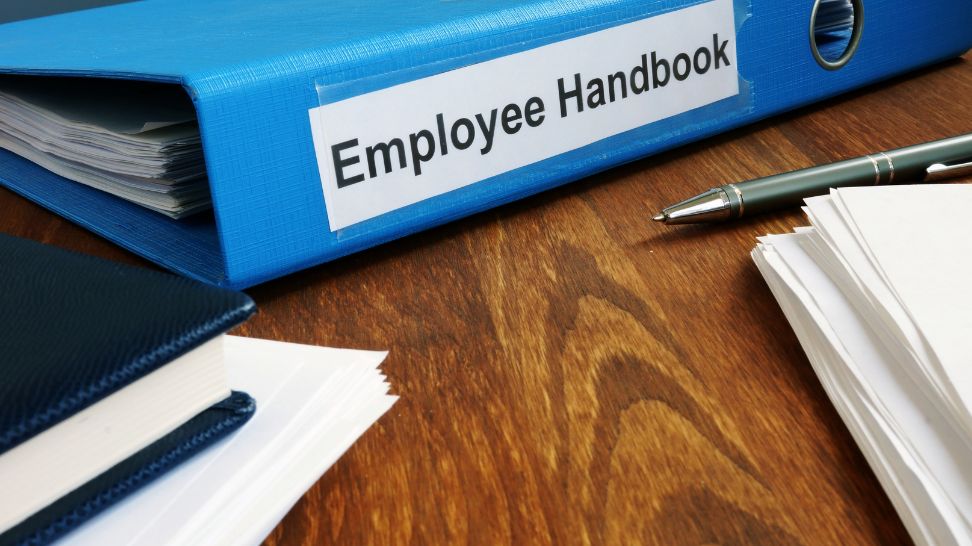A recent SCORE Association report revealed that each year about 43% of US. businesses face lawsuits or at least the threat of lawsuits. In many cases, these lawsuits are filed by customers and competitors. However, employment lawsuits have also become increasingly common with some employees suing their own employers over issues like harassment, discrimination, and retaliation.
Knowing how to protect your business against employment lawsuits is extremely important. Studies have suggested a lawsuit filed by a single employee can cost a company about $160,000 on average and take almost a year to play out.
Building a positive work environment through legal compliance and utilizing the right employment lawsuit prevention strategies can reduce the chances of employees suing your business. Discover more below about protecting your business.
How to Protect Your Business
Attention business owners! Learn essential strategies to safeguard your business from employment lawsuits in this must-watch video.
Assessing Risks Within Your Business
Before you try to figure out how to protect your business against employment lawsuits, familiarize yourself with the risks your company might regularly face. By identifying these risks, you can find ways to minimize them. Let’s take a look at the risks your company might encounter.
Identifying Vulnerabilities Within Your Business
Are you wondering, “Why would my employees ever want to file an employment lawsuit against my company?” Far too often, business owners are slow to realize why employees might consider taking legal action against them.
Here are several reasons why employees file lawsuits against their employers:
- They’ve been sexually harassed and don’t feel enough has been done about it.
- They’ve faced discrimination because of their age, gender, race, etc.
- They’ve been retaliated against for participating in protected activities, like reporting workplace violations to HR.
Workplace risk mitigation for employers begins with taking notice of these risks and aiming to eliminate them.
Evaluating Employee Relations and Policies
You might be under the impression that all your company’s employees are happy with their work lives, but recent surveys suggest otherwise. HP used its HP Work Relationship Index to survey workers from all around the world and found that less than one-third of American workers have healthy relationships with work.
Evaluate your employee relations and policies and answer questions like this:
- Do my employees walk into a positive work environment every day?
- Do they have access to conflict resolution strategies within the workplace?
- Do they get the support they need to help with their overall well-being?
If you answered “no” or even “I’m not sure” to any of these questions, it’s time to change the way you’re running your company. Unhappy employees are more likely to file employment lawsuits against your company.
Establishing Clear Employment Policies and Procedures
Companies need employment policies and procedures to ensure they’re providing employees with safe, productive workplaces. They should cover a wide range of topics, including:
- Attendance
- Safety
- Security
- Privacy
- Time off
There should also be a code of conduct that spells out how you expect your company’s employees to behave. It’s one way to protect your business against employment lawsuits caused by your employees saying or doing things that could land your company in hot water.
Crafting Comprehensive Handbooks
Unfortunately, a 2020 survey found that almost 70% of HR professionals struggle to get their companies’ employees to read their handbooks. But this doesn’t mean your company should choose not to compose a comprehensive handbook. This is one of the HR best practices to minimize lawsuits, as it can give your employees the guidance they need when it comes to following your company’s rules and regulations.
Importance of Regular Policy Updates and Training
A shocking survey conducted in 2018 found that about one-third of U.S. workers don’t receive formal workplace training from employers. Many people admitted they hadn’t been trained to do their jobs, let alone trained on how to act in their workplaces.
If you don’t have a formal training system for new employees yet, create one immediately. Develop training programs for your existing employees, too, so you can keep them in the know about policy updates.
Effective Hiring Practices
According to SCORE Association’s 2023 Employee Engagement report, about 60% of business owners say hiring the right people is one of their biggest challenges.
If hiring is always challenging for your company, you may cut corners to fill roles. Your company may struggle with defending against employee claims in court if you don’t use effective hiring practices.
Conducting Thorough Background Checks
Over 90% of companies perform background checks. However, these background checks aren’t always thorough. Some employers only run background checks on criminal histories and don’t look closely at employment histories. Run as many background checks as you can to ensure your company hires good people.
Implementing Standardized Interview Processes
Does your company have a standard interview process, or do you take a different approach to every interview you conduct? If you ask one job candidate a certain set of questions and another candidate a completely different set of questions, it could cause complications.
You may make it seem like you’re favoring one candidate over another based on the questions you ask. Creating standardized interview processes can give everyone a fair shot at employment.
Utilizing Alternative Dispute Resolution (ADR) Methods
Alternative dispute resolution (ADR) methods include:
- Mediation
- Arbitration
- Negotiated rulemaking
- Neutral factfinding
- Minitrials
These methods can keep any disputes your employees might have with each other or your company out of court. At the same time, they can help you find solutions to disputes quickly.
Benefits of Mediation and Arbitration
Mediation and arbitration are two of the most often used ADR methods. Mediation can help companies overcome employee-related disputes by bringing in third-party mediators. These mediators can help both sides in a dispute find common ground.
Arbitration, meanwhile, can help two sides settle a dispute through hearings that will be more efficient than court hearings. They’ll usually be over and done within days rather than months like court hearings.
Integrating ADR Clauses in Contracts
Incorporating clauses into your company’s contracts can showcase your commitment to ADR. It’ll allow your company to use ADR rather than always leaning on the legal system.
Creating a Cook Islands Trust (CIT) for Asset Protection
Understanding how to protect your business against employment lawsuits can minimize your company’s legal risks. Though there is always a small chance your company could face employment lawsuits.
Creating a Cook Islands Trust (CIT) for asset protection purposes can help.
Understanding CIT Benefits for Cash Protection
If your company ever faces an employment lawsuit, it can put your cash and other assets at risk. A CIT can protect them in the event of an employment lawsuit.
When you work with an asset protection lawyer, you can put your company’s assets into Cook Islands Assets Protection Trusts that even US courts will have trouble touching.
Process and Legal Considerations for Setting Up a CIT
Setting up a CIT is a simple process. Take these steps:
- Make sure the Cook Islands is the best jurisdiction for your offshore trust.
- Appoint a trustee for your trust.
- Create a trust agreement with an asset protection lawyer.
- Transfer assets to a CIT and manage them.
As long as you comply with the IRS reporting requirements for a CIT, you can protect your company’s assets from employment lawsuits.
Employee Training and Education
Earlier, we touched on the importance of training employees to do their jobs while following your company’s code of conduct. Take this a step further by training them on their legal rights and responsibilities. Speak with them about ethics and conflict resolution, too.
Sessions on Legal Rights and Responsibilities
Employment law compliance for business owners should always be at the forefront of your mind. Go the extra mile by sharing your employees’ legal rights and responsibilities with them. By being transparent, you can stress how important employment laws are.
Workshops for Ethics and Conflict Resolution
Some people argue ethics aren’t teachable, and they may be right. But you can teach your employees the ethical decisions your company makes and hope they follow your lead.
You can also hold workshops about conflict resolution and show employees how to work out disputes. Ask your employees to roleplay while using conflict resolution tactics to show how effective they can be.
Open Communication Channels
Your company should provide your employees with consistent feedback about their work performances. A recent Zippia survey found that companies that provide regular feedback to employees have about 15% lower turnover rates than other companies.
Your company should also accept employee feedback so you can pinpoint problem areas within your business and fix them.
Feedback Mechanisms and Platforms for Dialogue
Your company can gather feedback from your employees in many ways. Here are several options:
- Suggestion boxes
- Written surveys
- Online forms
- Focus groups
Accepting feedback from your employees and using it can help keep them happy.
Let Us Help You Protect Your Business Against Employment Lawsuits
Employment lawsuits are always a possibility for companies. Blake Harris Law can prevent you from having to worry about them by talking to you more about how to protect your business against employment lawsuits. Contact us now to get more information.




